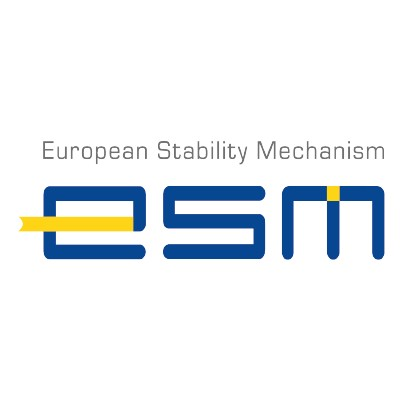A New Chapter or Old Wounds? The UK-EU Deal Debate
May 21, 2025, 6:15 pm

Location: Belgium, Brussels-Capital, Brussels
Employees: 1001-5000
Founded date: 1958
Total raised: $310.85K
The Brexit saga continues to unfold, and the latest chapter is marked by a new trade deal between the UK and the EU. Keir Starmer, the Prime Minister, heralds this agreement as a breakthrough. Critics, however, see it as a step backward. The political landscape is charged, and the stakes are high.
The air is thick with tension. Keir Starmer stands at the podium, a beacon of hope for some, a target for others. He calls the new EU deal a “comprehensive” pact, a lifeline thrown to a nation still grappling with the aftermath of Brexit. It’s been nearly six years since Boris Johnson’s government sealed the original deal, and now, the Prime Minister is eager to rewrite the narrative.
Starmer’s words echo through the halls of Westminster. He promises “unprecedented access” to the EU market. It’s a siren song for businesses longing for stability. Yet, beneath the surface, old wounds are reopening. The ghosts of Brexit haunt the corridors of power. Critics are sharpening their knives, ready to pounce.
Kemi Badenoch, the opposition leader, is vocal in her dissent. She vows to reverse the deal at the first opportunity. It’s a battle cry that resonates with many who feel betrayed. Meanwhile, Nigel Farage, the face of Brexit, is back in the fray. He slams Starmer’s approach as a move toward an “ever-diminishing political union.” The stage is set for a fierce political showdown.
At the heart of the deal lies a contentious issue: fishing rights. The UK has granted the EU access to its waters for an additional 12 years. This concession has sparked outrage among Conservative ranks. They accuse Starmer of sacrificing the fishing industry on the altar of trade. Business Secretary Jonathan Reynolds counters, arguing that the deal replaces uncertainty with consistency. It’s a classic case of competing narratives.
The deal also reshapes the landscape for British food and agricultural exports. Starmer’s government has agreed to adopt EU rules under a process called “dynamic alignment.” Retailers cheer this move, but critics see it as a capitulation. The UK, they argue, is now a rule-taker, bound by regulations crafted in Brussels. The European Court of Justice looms large, ready to arbitrate disputes. The irony is palpable: a nation that fought for independence now finds itself tethered to the very entity it sought to escape.
Liberal Democrats find a glimmer of hope in the agreement. They view it as a step toward rebuilding trust with Europe. Yet, even within their ranks, there are murmurs of discontent. The deal, they argue, doesn’t go far enough. It’s a delicate balancing act, and Starmer is walking a tightrope.
As the dust settles, Starmer remains defiant. He touts the agreement as part of a broader strategy, a series of trade deals that will redefine the UK’s global standing. He contrasts his government’s achievements with the “talk and talk” of previous administrations. The rhetoric is bold, but the reality is complex.
Months of negotiations lie ahead. The deal will be scrutinized in detail, with discussions on youth mobility, defense ties, and regulatory standards. The political landscape is set to be dominated by these debates. The stakes are high, and the outcome uncertain.
Boris Johnson, now a shadow of his former self, is quick to pounce. He labels Starmer as a “manacled gimp of Brussels,” a vivid metaphor that captures the sentiment of his supporters. Johnson’s criticisms are sharp, accusing Starmer of undermining UK sovereignty. The former Prime Minister’s voice echoes through the media, a reminder of the divisive nature of Brexit.
The fishing industry becomes a focal point of contention. Critics argue that Starmer’s concessions will devastate local economies. Farage’s party warns of a complete surrender. The narrative is clear: the battle for the soul of Brexit is far from over.
As the political storm brews, the public watches with bated breath. The deal has the potential to reshape the UK’s relationship with Europe, but at what cost? The specter of division looms large. The nation is caught in a tug-of-war between progress and nostalgia.
In the coming months, the debate will intensify. The implications of the deal will ripple through every corner of society. Businesses will adapt, fishermen will protest, and politicians will spar. The Brexit saga is not just a political issue; it’s a cultural battleground.
Starmer’s government faces a formidable challenge. Can they navigate the treacherous waters of public opinion? Will they emerge victorious, or will they find themselves ensnared in the very traps they sought to avoid? The answers remain elusive.
In the end, the UK-EU deal is more than just a trade agreement. It’s a reflection of a nation grappling with its identity. The past and future collide in a whirlwind of emotions and ambitions. The next chapter in this saga is yet to be written, but one thing is clear: the debate is far from over. The fight for the heart of Brexit continues, and the outcome will shape the UK for generations to come.
The air is thick with tension. Keir Starmer stands at the podium, a beacon of hope for some, a target for others. He calls the new EU deal a “comprehensive” pact, a lifeline thrown to a nation still grappling with the aftermath of Brexit. It’s been nearly six years since Boris Johnson’s government sealed the original deal, and now, the Prime Minister is eager to rewrite the narrative.
Starmer’s words echo through the halls of Westminster. He promises “unprecedented access” to the EU market. It’s a siren song for businesses longing for stability. Yet, beneath the surface, old wounds are reopening. The ghosts of Brexit haunt the corridors of power. Critics are sharpening their knives, ready to pounce.
Kemi Badenoch, the opposition leader, is vocal in her dissent. She vows to reverse the deal at the first opportunity. It’s a battle cry that resonates with many who feel betrayed. Meanwhile, Nigel Farage, the face of Brexit, is back in the fray. He slams Starmer’s approach as a move toward an “ever-diminishing political union.” The stage is set for a fierce political showdown.
At the heart of the deal lies a contentious issue: fishing rights. The UK has granted the EU access to its waters for an additional 12 years. This concession has sparked outrage among Conservative ranks. They accuse Starmer of sacrificing the fishing industry on the altar of trade. Business Secretary Jonathan Reynolds counters, arguing that the deal replaces uncertainty with consistency. It’s a classic case of competing narratives.
The deal also reshapes the landscape for British food and agricultural exports. Starmer’s government has agreed to adopt EU rules under a process called “dynamic alignment.” Retailers cheer this move, but critics see it as a capitulation. The UK, they argue, is now a rule-taker, bound by regulations crafted in Brussels. The European Court of Justice looms large, ready to arbitrate disputes. The irony is palpable: a nation that fought for independence now finds itself tethered to the very entity it sought to escape.
Liberal Democrats find a glimmer of hope in the agreement. They view it as a step toward rebuilding trust with Europe. Yet, even within their ranks, there are murmurs of discontent. The deal, they argue, doesn’t go far enough. It’s a delicate balancing act, and Starmer is walking a tightrope.
As the dust settles, Starmer remains defiant. He touts the agreement as part of a broader strategy, a series of trade deals that will redefine the UK’s global standing. He contrasts his government’s achievements with the “talk and talk” of previous administrations. The rhetoric is bold, but the reality is complex.
Months of negotiations lie ahead. The deal will be scrutinized in detail, with discussions on youth mobility, defense ties, and regulatory standards. The political landscape is set to be dominated by these debates. The stakes are high, and the outcome uncertain.
Boris Johnson, now a shadow of his former self, is quick to pounce. He labels Starmer as a “manacled gimp of Brussels,” a vivid metaphor that captures the sentiment of his supporters. Johnson’s criticisms are sharp, accusing Starmer of undermining UK sovereignty. The former Prime Minister’s voice echoes through the media, a reminder of the divisive nature of Brexit.
The fishing industry becomes a focal point of contention. Critics argue that Starmer’s concessions will devastate local economies. Farage’s party warns of a complete surrender. The narrative is clear: the battle for the soul of Brexit is far from over.
As the political storm brews, the public watches with bated breath. The deal has the potential to reshape the UK’s relationship with Europe, but at what cost? The specter of division looms large. The nation is caught in a tug-of-war between progress and nostalgia.
In the coming months, the debate will intensify. The implications of the deal will ripple through every corner of society. Businesses will adapt, fishermen will protest, and politicians will spar. The Brexit saga is not just a political issue; it’s a cultural battleground.
Starmer’s government faces a formidable challenge. Can they navigate the treacherous waters of public opinion? Will they emerge victorious, or will they find themselves ensnared in the very traps they sought to avoid? The answers remain elusive.
In the end, the UK-EU deal is more than just a trade agreement. It’s a reflection of a nation grappling with its identity. The past and future collide in a whirlwind of emotions and ambitions. The next chapter in this saga is yet to be written, but one thing is clear: the debate is far from over. The fight for the heart of Brexit continues, and the outcome will shape the UK for generations to come.

